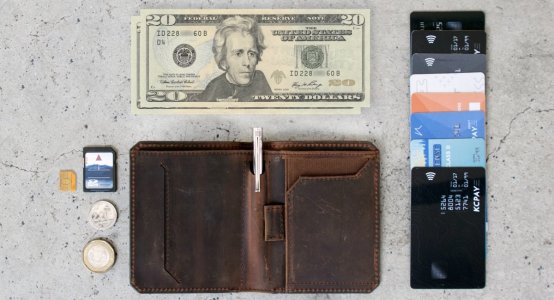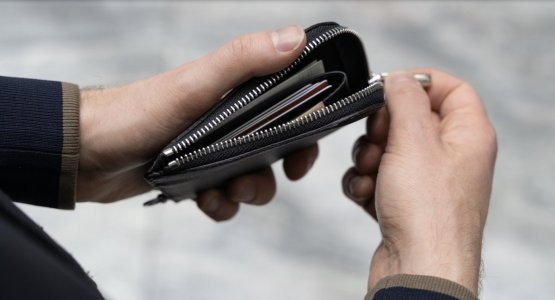Struggling with debt? These 5 categories might qualify for forgiveness
- Replies 0
These days, many are feeling the pressure of unpaid bills—some barely keeping up, others already behind.
From surprise medical costs to snowballing credit card balances, the weight of debt can build up quickly.
For older Americans in particular, the financial burden can feel like it’s closing in from all sides—but in some cases, that pressure may ease thanks to an often-overlooked strategy: debt forgiveness.
This approach isn’t for every situation, but for certain types of debt, it may offer real, immediate relief—and in some cases, even wipe out what you owe.
This might come through a negotiated settlement or a formal program.
It’s not automatic, and it’s not guaranteed.
But under the right circumstances, it can be a real lifeline—especially for unsecured debts.

Credit card issuers are often willing to accept a lump-sum payment for less than the total balance if a borrower has fallen significantly behind—usually by 90 to 180 days.
Why? Because these debts aren’t backed by collateral. Lenders would rather recover part of the amount owed than risk getting nothing at all.
Pro tip: Borrowers usually need to show financial hardship and offer a reasonable lump sum. The larger the upfront amount, the better the odds of acceptance.
Also read: Shocking debt trap: How the Rule of 72 formula reveals the true cost of your credit card balance
If your loan is delinquent and has been charged off—meaning the lender no longer expects to collect it—you may be able to negotiate a lower payoff through a one-time payment.
But if your loan is still current or has already been sent to court, lenders may not be open to settling.
The more delinquent the account, the more leverage you may have—but it’s a race against legal action.
Hospitals often offer patient assistance programs or zero-interest payment plans.
In some cases, they’ll accept a lower lump-sum payment, especially if you don’t qualify for other forms of financial assistance.
Medical providers often prefer to settle rather than send the debt to collections.
Don’t be afraid to ask for help—even if you’ve already missed payments.
Source: @yourrichbff / TikTok
Once the debt becomes severely delinquent, it may be sold to third-party collectors. At that point, your ability to negotiate directly becomes more limited.
These debts are usually small, so there’s less incentive for creditors to settle—but it’s still possible.
If you’re behind on buy now, pay later payments, act quickly. The earlier you reach out, the more likely you’ll avoid collections.
Also read: Retirees struggling with credit card debt—a crisis we can't ignore!
Many payday lenders are outside the traditional banking system and use aggressive repayment tactics.
Still, if the account has been inactive for some time—or if you can demonstrate extreme financial hardship—some lenders may agree to a reduced payoff.
But be cautious: These lenders often structure their loans to keep borrowers trapped in a cycle of debt.
If you’re considering a payday loan, try other options first—like reaching out to a credit union or utility company for a payment plan.

Debt forgiveness isn’t risk-free. Settlements can negatively affect your credit score.
That’s why it’s important to consult a certified credit counselor or debt relief expert before agreeing to anything.
Read next: The hidden debt crisis: see where Americans are struggling the most

Have you ever negotiated a debt settlement? Do you have tips or warnings for others in our community? Or are you struggling with a type of debt not mentioned here? Share your experiences and questions in the comments below. Your story could help someone else find hope and a path forward.
From surprise medical costs to snowballing credit card balances, the weight of debt can build up quickly.
For older Americans in particular, the financial burden can feel like it’s closing in from all sides—but in some cases, that pressure may ease thanks to an often-overlooked strategy: debt forgiveness.
This approach isn’t for every situation, but for certain types of debt, it may offer real, immediate relief—and in some cases, even wipe out what you owe.
Understanding debt forgiveness
Debt forgiveness means a lender agrees to accept less than the full amount owed and cancels the rest.This might come through a negotiated settlement or a formal program.
It’s not automatic, and it’s not guaranteed.
But under the right circumstances, it can be a real lifeline—especially for unsecured debts.

Debt forgiveness means a lender agrees to accept less than the full amount owed and cancels the rest. Image Source: Kisetsu Co / Unsplash
1. Credit Card Debt
This is one of the most common forms of unsecured debt—and among the easiest to settle.Credit card issuers are often willing to accept a lump-sum payment for less than the total balance if a borrower has fallen significantly behind—usually by 90 to 180 days.
Why? Because these debts aren’t backed by collateral. Lenders would rather recover part of the amount owed than risk getting nothing at all.
Pro tip: Borrowers usually need to show financial hardship and offer a reasonable lump sum. The larger the upfront amount, the better the odds of acceptance.
Also read: Shocking debt trap: How the Rule of 72 formula reveals the true cost of your credit card balance
2. Personal Loans
Loans from banks, online lenders, and credit unions often fall into the same unsecured category as credit cards.If your loan is delinquent and has been charged off—meaning the lender no longer expects to collect it—you may be able to negotiate a lower payoff through a one-time payment.
But if your loan is still current or has already been sent to court, lenders may not be open to settling.
The more delinquent the account, the more leverage you may have—but it’s a race against legal action.
3. Medical Bills
Medical debt continues to be a major concern for many—especially seniors. Fortunately, many providers are open to negotiation.Hospitals often offer patient assistance programs or zero-interest payment plans.
In some cases, they’ll accept a lower lump-sum payment, especially if you don’t qualify for other forms of financial assistance.
Medical providers often prefer to settle rather than send the debt to collections.
Don’t be afraid to ask for help—even if you’ve already missed payments.
Source: @yourrichbff / TikTok
4. Buy Now, Pay Later Plans
These newer payment programs are gaining traction fast—but can quickly spiral out of control if you fall behind.Once the debt becomes severely delinquent, it may be sold to third-party collectors. At that point, your ability to negotiate directly becomes more limited.
These debts are usually small, so there’s less incentive for creditors to settle—but it’s still possible.
If you’re behind on buy now, pay later payments, act quickly. The earlier you reach out, the more likely you’ll avoid collections.
Also read: Retirees struggling with credit card debt—a crisis we can't ignore!
5. Payday Loans
These loans are high-risk and high-cost—and while technically unsecured, they’re notoriously hard to settle.Many payday lenders are outside the traditional banking system and use aggressive repayment tactics.
Still, if the account has been inactive for some time—or if you can demonstrate extreme financial hardship—some lenders may agree to a reduced payoff.
But be cautious: These lenders often structure their loans to keep borrowers trapped in a cycle of debt.
If you’re considering a payday loan, try other options first—like reaching out to a credit union or utility company for a payment plan.

From surprise medical costs to snowballing credit card balances, the weight of debt can build up quickly. Image Source: Aleksandrs Karevs / Unsplash
Debt forgiveness isn’t risk-free. Settlements can negatively affect your credit score.
That’s why it’s important to consult a certified credit counselor or debt relief expert before agreeing to anything.
Read next: The hidden debt crisis: see where Americans are struggling the most
Key Takeaways
- Credit card debt is one of the most commonly forgiven types, especially after 90–180 days of non-payment and a lump sum offer.
- Medical bills can often be reduced through assistance programs, payment plans, or direct negotiation for a lump sum.
- Personal loans may be settled if they’ve been charged off, though options are limited once legal action starts.
- Buy now, pay later and payday loans can be settled but are harder to negotiate—especially if accounts are sold to collectors or lenders are unregulated.






